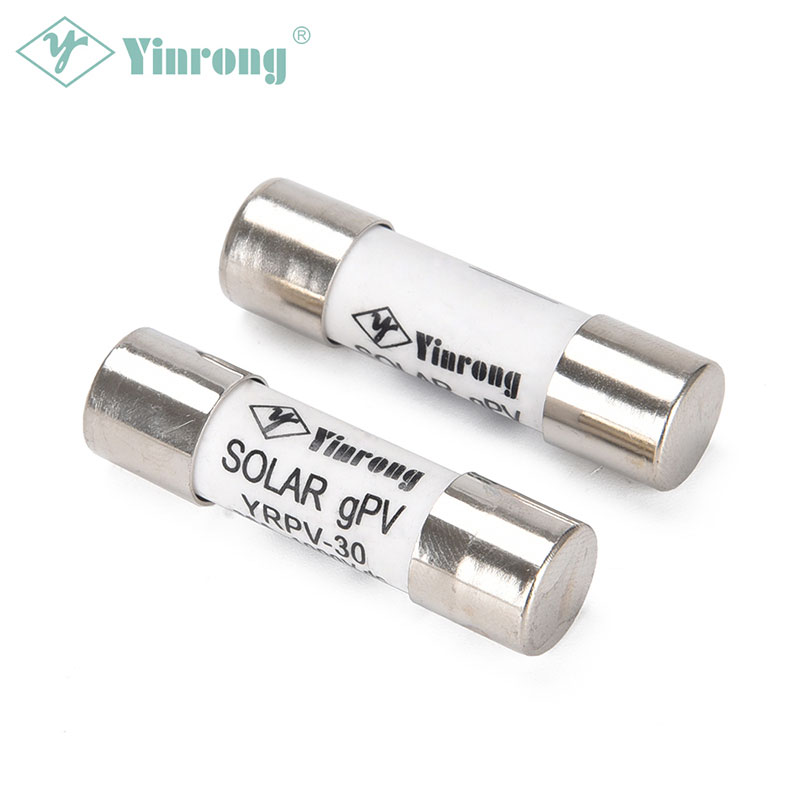Solar Power Protection: Why PV Fuses Are Essential for Safe and Efficient Solar Systems
2025-06-17
As solar energy becomes an increasingly popular choice for clean and renewable power, ensuring the safety and reliability of photovoltaic (PV) systems is more important than ever. One critical component that plays a vital role in protecting solar power installations is the PV fuse.
In this blog, we’ll explore what PV fuses are, why they matter, and how they help safeguard your solar energy system.

What Is a PV Fuse?
A PV fuse (photovoltaic fuse) is a specialized fuse designed specifically for solar power systems. It acts as a safety device that protects the photovoltaic array and associated components from overcurrent conditions, such as short circuits or electrical faults.
Unlike standard electrical fuses, PV fuses are engineered to handle the unique characteristics of DC (direct current) solar circuits, which can operate at high voltages and currents.
Why Do Solar Systems Need PV Fuses?
Solar power systems generate DC electricity, which behaves differently from AC (alternating current) electricity found in traditional power grids. DC arcs can be harder to extinguish, and solar arrays often operate at high voltages — making effective overcurrent protection critical.
PV fuses help by:
Interrupting excessive current to prevent damage to solar panels and wiring
Reducing fire hazards caused by electrical faults
Protecting inverters, combiner boxes, and other system components
Ensuring compliance with electrical safety standards and codes
Key Features of PV Fuses
High DC Voltage Rating: PV fuses are rated to safely interrupt high DC voltages common in solar arrays.
Fast-Acting: Designed to react quickly to overcurrent situations to minimize damage.
Reliable Breaking Capacity: Can safely disconnect large fault currents without failure.
Durability: Resistant to environmental conditions like UV exposure, heat, and moisture, suitable for outdoor installation.
Standard Compliance: Often comply with industry standards such as UL 2579 or IEC 60269.
Where Are PV Fuses Used?
PV fuses are commonly installed in:
Combiner Boxes: Protect strings of solar panels combined in parallel.
Junction Boxes: Provide localized protection at panel connections.
Inverter Inputs: Guard against faults upstream from the inverter.
String Disconnects: Enable safe maintenance by isolating parts of the system.
Choosing the Right PV Fuse
When selecting a PV fuse, consider:
Voltage and Current Ratings: Match the fuse rating with your system’s maximum voltage and expected current.
Type of Fuse: Time-delay or fast-acting depending on system design.
Environmental Ratings: Suitable for outdoor use and extreme weather.
Certification: Ensure compliance with relevant safety standards.
Final Thoughts
PV fuses are an indispensable part of solar power protection, ensuring your renewable energy system operates safely, reliably, and efficiently. By preventing electrical faults and minimizing risks, PV fuses help maximize the lifespan of your solar investment.
If you’re designing, installing, or maintaining a solar PV system, don’t overlook the importance of high-quality PV fuses. Investing in the right protection means peace of mind and optimal performance.


